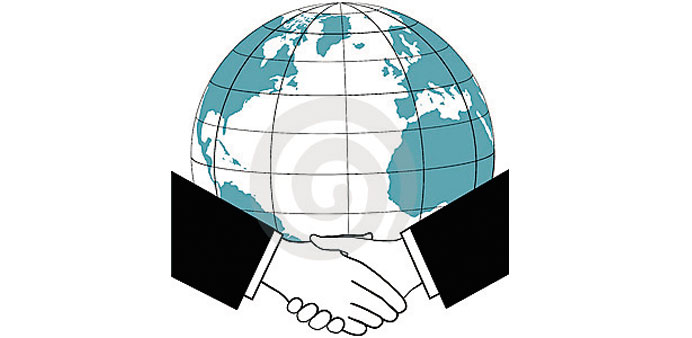MCT Information Services/Washington
At the Colombian embassy in Washington, Ambassador Carlos Urrutia says there’s no doubt that his country’s trade deal with the US has paid off: Colombian businesses are sending more socks and cosmetics to California, beet sugar to New York and glass to Florida to help with hurricane repairs.
US officials are equally excited, saying US businesses have improved their sales to the south American country by 20%.
Manufacturers are exporting more transportation equipment, petroleum and coal products, processed foods and a long list of farm products, including soybeans, pork, wheat, grapes and dairy goods.
But a year after the agreement took effect, the growth in trade is producing mounting anxiety in some quarters.
In California, for example, progress has come with a price for the once-dominant flower industry: Colombian imports have jumped 7% in the past year. Less than 3% of the Valentine’s Day roses sold in US country were grown in the country.
On New Year’s Day, just two of the 41 floats in the popular Rose Parade in Pasadena, California, featured flowers grown in the Golden State.
“People don’t think about where their flowers come from, like they do their food,” said Kasey Cronquist, the CEO of the California Cut Flower Commission.
The unhappiness extends well beyond flowers. Opponents note that the balance of trade between the countries remains out of whack: The US imported nearly $25bn in goods from Colombia last year, while it exported only $16bn.
In Washington, the trade agreement is under increased attack from critics who want President Barack Obama to do more to reverse the violence that persists in Colombia, where at least 20 unionists were assassinated last year.
Despite the complaints, Urrutia said the agreement was clearly benefiting US consumers by giving them more products from which to choose.
Overall, he said, two-way trade between the countries is up by 5%, and Colombian companies have sent 187 new products to the US in the past year, including photographic equipment, anti-inflammatory drugs, tropical fruit juices with sugar, and electrical transformers. He said 775 Colombian companies had shipped products to the US for the first time in the past year, with 23 states getting at least one new Colombian product.
While the Colombian government doesn’t track how many new jobs have been produced as a result of the trade pact, he estimated them to be in the thousands, adding that the unemployment rate in the country is declining. It stood at 10% in March, after averaging more than 12% for the past dozen years.
“We’ve been looking at the figures. What we see is encouraging. We’re quite satisfied,” Urrutia said.

